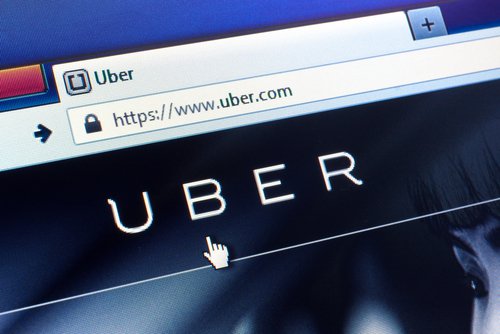Ricochet is the best place on the internet to discuss the issues of the day, either through commenting on posts or writing your own for our active and dynamic community in a fully moderated environment. In addition, the Ricochet Audio Network offers over 50 original podcasts with new episodes released every day.
 In Praise of the Sharing, Peer-to-Peer Economy
In Praise of the Sharing, Peer-to-Peer Economy
 Zipcar founder Robin Chase has an HBR piece, “Who Benefits from the Peer-to-Peer Economy,” where she discusses how workers are faring in the collaborative/peer-to-peer/on demand/sharing/gig economy, defining it as “marked by many platforms that engage a diversity of peers to contribute excess capacity which can be harnessed for greater impact … new platforms increasingly give the small the powers of marketing and distribution that were once reserved for the very large.” Same goes for manufacturing with 3-D printing, for instance, or MOOCs. But, she adds, policymakers must engage this new aspect of the US economy:
Zipcar founder Robin Chase has an HBR piece, “Who Benefits from the Peer-to-Peer Economy,” where she discusses how workers are faring in the collaborative/peer-to-peer/on demand/sharing/gig economy, defining it as “marked by many platforms that engage a diversity of peers to contribute excess capacity which can be harnessed for greater impact … new platforms increasingly give the small the powers of marketing and distribution that were once reserved for the very large.” Same goes for manufacturing with 3-D printing, for instance, or MOOCs. But, she adds, policymakers must engage this new aspect of the US economy:
Governments need to recognize and prepare for this new third way of working which is neither full-time nor temporary part-time, but a new way of life. The Internet exists and everything that can become a platform will. Local and federal governments need to start tying benefits to people and not jobs, ensuring that labor is protected during this disruptive and swift transition. In a world struggling to cope with incessant disruption brought on by fast-paced technical innovation, climate change, urbanization, and globalization, Peers, Inc. is the structure for our times. It enables us to experiment, iterate, adapt, and evolve at the required pace. I’m happy this flexible new tool has come to exist. But while we are reaping the economic benefits brought on by individual contributions, we need to proactively share the productivity and innovation gains with individuals, too.
While I think the scope of the problem here has been exaggerated, Chase makes a good point, especially about tying benefits to people rather than jobs. Which is why mandating new benefits and employer costs is the wrong way to go. From my recent The Week column:
Published in EconomicsThere is no free lunch here. Employer benefit contributions come out of worker wages. As Democratic economist Lawrence Summers wrote in a seminal but simple paper on the subject, “Mandated benefit programs can work against the interests of those who most require the benefit being offered.” For instance: One common criticism of employer provided health care is that workers pay two ways, through premiums and through wages that are lower than they would be otherwise. Similarly, most economists think that both the employer and employee shares of Social Security taxes are really borne by workers.
Why double down on such an approach, especially during a time of supposed wage stagnation? Let middle-class workers keep more of what they earn and make it easier for them to save their own dough to meet the ups and downs of life — as well as build wealth. Maybe even nudge them through mechanisms such as, say, auto-enrollment into retirement plans. And if some workers simply don’t make enough to save, then the rest of us should subsidize their earnings. And let the on-demand economy continue to mature and evolve and perhaps create new models for employer-employee relations.




This is liberalism, with extra ketchup on top.
Either we stand for freedom (both for workers to decide their own futures, and for others to keep what they earn), or we stand for endless top-down meddling.
What iWe said.
Any chance you could tell us the name of the economist who thinks otherwise?